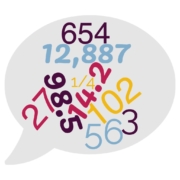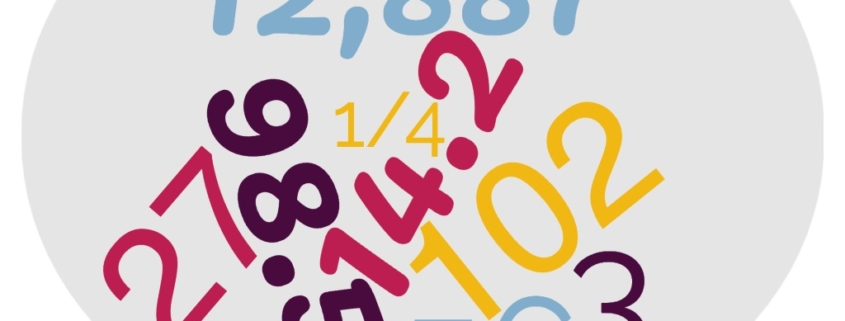Those Numbers Don’t Mean What You Think They Mean

How do you measure the health of a community? I’ve said this before (actually over and over again for years now), and I’ll say it again: the fact that the media and the government insist on measuring the health of our country by the economic standards they arbitrarily set is ridiculous. Absurd. Irrelevant.
The daily or monthly reports on the stock market numbers, the numbers of jobs created, unemployment figures – all of these things are designed to create a picture of a country as a set of mathematical problems and people are not math problems. People are not even story problems. Communities are made of people who have needs that have nothing to do with the stock market and the number of hours of paid work they engage in. But for the folks who need data, who say that numbers are the way we understand what’s happening, let’s go on a little journey …
Imagine for a moment if the media started reporting the number of households who struggled with food insecurity in the last month and comparing it to the month before that and the month before that.
What if, instead of “jobs created,” they told us the number of folks who lost their housing in the last quarter? Or the number of persons who remain unhoused and for how long they’ve struggled with that?
Somewhere, there have to be figures that enumerate the scores of families and individuals who have unpaid medical debt and charts that show how much that debt has grown over the years and how it has impacted the other two measures of food insecurity and houselessness.
What if the media routinely talked about those numbers, over and over again, throughout the evening newscast, at the top of the hour on NPR, and in print for folks to see? Would it move politicians to address those issues more quickly and with more urgency? Because what politicians talk about now are jobs and the stock market, and these are things that don’t translate into healthy communities. We have seen for years that a rising stock market does not mean that everyone in this country is doing okay. There are scores of people in this country who do not have money invested in the stock market, who don’t have any disposable income to invest. We know that unemployment figures don’t show the kind of information we pretend they do. People are “underemployed” for a variety of reasons, and some folks don’t even show on unemployment figures because they’ve given up looking for work – either because they can’t afford to work (yes, it’s absurd that that is a reality, but it is), they don’t have the skills employers are seeking, they’re discriminated against, or they are not able to work for a variety of reasons.
Instead of talking about “the economy,” what if we talked about people and how their basic needs are increasingly not being met? Instead of doing a “homeless count” once a year in major cities, what if we looked at the reasons people lose housing and report on those numbers every single week?
Our priorities are reflected in the kind of information we choose to seek and compile and report. And the vicious cycle that is created here is that we continue to believe that these *should* be our priorities, so we focus on them to the exclusion of the things that might actually tell us about the health of our country. It’s not a panacea, but shifting the way we talk about and measure the health of our communities might give us more of a reason to start working on ensuring that more of us are supported and stable.
I’d like to think that maybe if the media were constantly reporting on the number of people in this country who have declared bankruptcy or lost their housing or carried crippling debt from medical bills, we might find enough politicians who were willing to overhaul the system in the face of insurance company lobbyists.
Perhaps if there were an accurate picture of the number of households with members who are consistently underfed, there would be political will to change the way we support folks with SNAP benefits.
What we focus on grows. We need to start focusing on people and their struggles to survive and the things we can do to help them, help humans, not “the economy.” There is no such thing as trickle-down, except in the realm of fairy tales and rain water.









Leave a Reply
Want to join the discussion?Feel free to contribute!